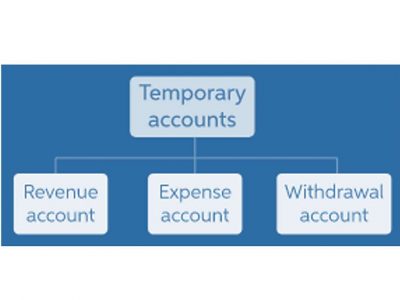
When they aren’t used up or expired, these payments show up on an insurance company’s balance sheet. A company’s property insurance, liability insurance, business interruption insurance, etc. often covers a one-year period with the cost (insurance premiums) paid in advance. The one-year period for the insurance rarely coincides with the company’s accounting year. Therefore, the insurance payments will likely involve more than one annual financial statement and many interim financial statements. Accounting prepaid expenses are the expenses that are paid in advance by a business for goods or services that will be received or consumed in the future.

Monthly Financial Reporting Template for CFOs

Individuals benefit from prepaid expenses to make sure they will not miss payments for things like health insurance. It reflects a future economic Food Truck Accounting advantage for the insured party by providing protection against potential losses or obligations. Prepaid insurance is first recorded as an asset on the balance sheet because the coverage is for a future point in time. When managing prepaid expenses, it is crucial to consider cash flow impact.
Products
For some categories, like prepaid rent, the expense may be deducted when a business pays for insurance, prepaid insurance is in the year it is paid. Other expenses, however, follow the general rule of capitalization and amortization. Prepaid expenses are recorded in accounting to accurately reflect expenses that will occur in the future. This practice helps in planning and allows companies to allocate resources appropriately over time. Knowing how to handle these payments can lead to better financial health and clearer accounting practices.
The best expense management tool
As a business owner, it’s essential to understand the concept of prepaid insurance and how it works. In this article, we’ll delve into the details of prepaid insurance, its benefits, and how it can benefit your business. At the end of June, the entire monthly insurance coverage has been used, so LMN Company needs to expense the full amount. This adjusting entry will be repeated at the end of May and June to recognize the insurance expense gradually over the quarter.
- Accident insurance premiums, for example, must be purchased before something goes wrong.
- Prepaid insurance refers to the amount of insurance premium that has been paid in advance for future coverage.
- However, with prepaid insurance, you were able to protect your business and ensure that you could continue operating without significant disruption.
- This is an accounting accrued expense, as the business incurs the electricity expense before it pays for it.
- Start by calculating the portion of the prepaid expense that applies to a particular period.
- Prepaid insurance is usually charged to expense on a straight-line basis over the term of the related insurance contract.
As time passes and the insurance coverage is used, an adjusting entry is made to expense the portion of the prepaid insurance that has been used. Prepaid insurance is a type of insurance that is paid for in advance of the coverage period. It is a form of risk management that allows businesses to pay for insurance coverage before the risk of loss occurs. The prepaid insurance is recorded as an asset on the balance sheet and is amortized over the coverage period. It is included under prepaid expenses with other pre-paid items like prepaid rent, prepaid taxes, and prepaid utilities.
Ready to Experience the Future of Finance?
You decide to purchase prepaid insurance for this machinery for a period of one year. You pay the premium upfront, ensuring coverage against any potential losses or damages to the machinery during that year. This period can range from a few months to a year or even longer, depending on the agreement with the insurance provider. Prepaid expenses, such as prepaid rent and prepaid insurance, represent assets for a business until gross vs net they are used. However, the premiums may be marginally higher to account for inflation and other operating factors.

In summary, prepaid insurance offers numerous benefits for both individuals and businesses alike. It provides financial protection, efficient cash flow management, and peace of mind. By understanding how prepaid insurance works and exploring its advantages, you can make informed decisions when it comes to protecting your assets and managing risks. When a prepaid expense is first incurred, it is recorded as an asset on the balance sheet. The company pays cash for a service or benefit it will receive later, such as insurance or rent. As the service or benefit is consumed over time, the prepaid expense transitions into an expense on the income statement.
The Common Examples of Accounting Prepaid Expenses

Prepaid rent refers to rent payments made in advance for the use of property. When a business pays for rent before the period it covers, this amount is recorded as a prepaid expense. By learning about prepaid expenses, individuals and businesses can avoid common pitfalls in expense management. This knowledge helps ensure that cash flow remains steady and that funds are allocated efficiently for future needs. Prepaid expenses are amounts paid in advance by a business in exchange for goods or services to be delivered in the future.
Schreibe einen Kommentar